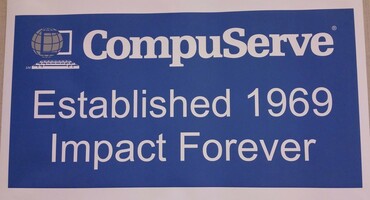Negative externalities
There are plenty of readily available reasons why everything is suddenly so much more expensive: pandemic-blighted supply chains, staff shortages, rising energy prices that push everything else up, the war in Ukraine, monopolistic consolidation that has created a "profits-inflation spiral", per Matt Stoller, and, in the UK, Brexit. But there's another factor also at work: the rising cost of capital.
Throughout the last 15 years of low interest rates, venture capitalists have, by pouring funding into money-losing technology-adjacent companies, been funding what some have called the "millennial lifestyle". I doubt it's limited to millennials; people of all ages have taken advantage of what has been an era of predatory loss-leading pricing intended to undercut the competition until it goes away and they can raise prices.
Amazon did not invent this tactic, but it may have been the first web company to really exploit it. It lost money the first five years it was a public company, and again at other times in its history. Cheap prices were an important part of getting people to use the site; Bezos famously chose its Seattle location to avoid sales taxes on the books it began with. As long ago as 2014, however, people had begun warning that it was now often the more expensive option. And, these days, its search results are full of clutter, ads, "sponsored products", and weird brand names.
I began using Amazon so early in its history that I have an insulated mug the company sent its customers one mid-1990s Christmas. These days, I sometimes go for months at a time without using it.
It's not easy because, as "honest broker" Ted Gioia points out, the long tail Chris Anderson touted in 2004, first in a Wired article and then in a book, doesn't really work. Instead of niche products dominating the market, we continue to have blockbusters and what Gioia calls the "short tail". Companies like Netflix and Amazon, who made their names selling the widest possible range, have since narrowed their offerings. (As Gioia deoesn't say, in its early days Amazon didn't actually have warehouses full of every possible book title; it let the distributor Ingram do that, and sent runners over to collect copies of obscure titles when they were ordered. Now, the long tail is often handled by third-party merchants in its Marketplace.)
As Gioia concludes, the 80/20 rule won and kept winning - which also means that 20 percent of online retailers do 80 percent of the business, and occupy 80 percent of the search listings, and that 20 percent becomes harder and harder to find.
But back to the "millennial lifestyle". "If you wake up on a Casper mattress, work out with a Peloton before breakfast, Uber to your desk at a WeWork, order DoorDash for lunch, take a Lyft home, and get dinner through Postmates, you've interacted with seven companies that will collectively lose nearly $14 billion this year," Derek Thompson wrote at The Atlantic in 2019 just after the WeWork crash. Thompson went on to predict that WeWork's example was going to make venture capitalists much less willing to finance all that free living in future.
Last week, he published an update, noting that while the combination of spiking energy and labor costs is getting all the headlines, rising prices among the "millennial lifestyle" companies are also part of why life feels so much more expensive for urbanites. Tl;dr: those companies can't afford the subsidy any longer. Rising interest rates surely play a part, too, particularly for a company like Netflix, which used easy access to cheap money to acquire substantial debt with which to finance building its own content library. It didn't have much choice, since it was inevitable that eventually content producers like Disney and the legacy broadcast networks would want to reserve their content for their own streaming services. Now, however, with subscriber numbers under pressure from cost-of-living decisions, its prices are going up and it's adding an advertising-supported tier.
At the New York Times, Kevin Roose reports the same experience as Thompson: "For years, these subsidies allowed us to live Balenciaga lifestyles on Banana Republic budgets." Today...well, less $16 for an Uber ride across greater Los Angeles, more $250 to get from midtown Manhattan to JFK airport. (Pro tip: there's an express bus from just outside Grand Central station that runs every 30 minutes and gets you there in under an hour for $19.)
The startup extravagance Roose describes - his used car was delivered by a white-gloved valet and adorned with a giant bow - is utterly 1999, when startups recklessly burned through their all-too-easily-raised capital by installing in-office chefs and TGIF bartenders. We know what happened to that: market collapse, followed by more sensible burn rates. WeWork provided a similar, but much crazier, cautionary tale, which Stoller dubbed- counterfeit capitalism.
This approach was never going to be sustainable. So now these services - Stoller lists Bird, Lyft, and Uber (which transport industry expert Hubert Horan notes has lost $31 billion over its lifetime) - are being forced to adopt realistic pricing. In the long run, hopefully it will improve competition and be better for the workers in those industries. For right now, though, it's going to hurt.
Illustrations:
Wendy M. Grossman is the 2013 winner of the Enigma Award. Her Web site has an extensive archive of her books, articles, and music, and an archive of earlier columns in this series. Stories about the border wars between cyberspace and real life are posted occasionally during the week at the net.wars Pinboard - or follow on Twitter.





